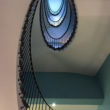Even short bursts of vigorous activity can lower cancer risk
 A recent study explored how brief, intense bursts of physical activity, called vigorous intermittent lifestyle physical activity (VILPA), relate to cancer risk. The study followed more than 22,000 adults who did not regularly exercise. Participants wore accelerometers on their wrists to measure VILPA bouts of up to 1 and 2 minutes.
A recent study explored how brief, intense bursts of physical activity, called vigorous intermittent lifestyle physical activity (VILPA), relate to cancer risk. The study followed more than 22,000 adults who did not regularly exercise. Participants wore accelerometers on their wrists to measure VILPA bouts of up to 1 and 2 minutes.
Over an average of 6.7 years, 2356 new cases of cancer were reported among the participants. VILPA of even just 1 minute per day was linked to a reduced risk of total cancer by 20% and of cancers related to physical inactivity by 31% compared to no VILPA. The study found that the more VILPA performed daily, the lower the cancer risk, with the strongest risk reduction observed for (PA) physical activity-related cancers, including breast and colon cancers.
For instance, engaging in 3.4 minutes of daily VILPA reduced the risk of total cancer, and 3.7 minutes reduced the risk of PA-related cancers significantly. These benefits were seen regardless of whether VILPA was done in bouts of 1 or 2 minutes.
The findings suggest that integrating short bursts of vigorous activity into daily life could effectively lower cancer risk, especially for those who find traditional exercise routines challenging or inaccessible. This approach might appeal to individuals with busy schedules or those who are less inclined to engage in regular exercise.
Overall, the study underscores the potential of incorporating brief, intense physical activities throughout the day as a feasible strategy for cancer prevention. These results could inform public health recommendations aimed at reducing cancer risk through simple and manageable lifestyle changes, promoting health benefits achievable through everyday activities.
JAMA Oncol. 2023 Sep 1;9(9):1255-1259. doi: 10.1001/jamaoncol.2023.1830. PMID: 37498576





















